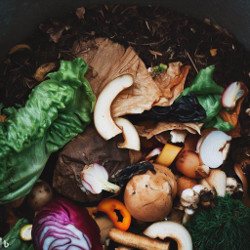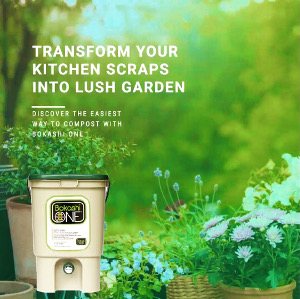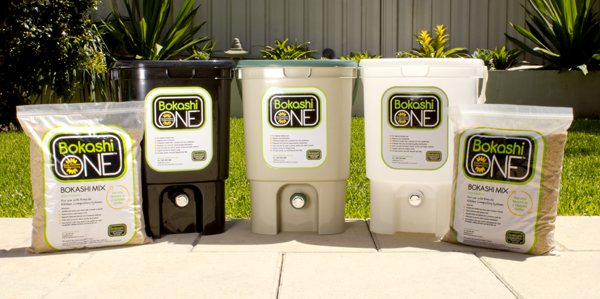Collecting Kitchen Scraps for the garden
Collecting Kitchen Scraps for the Garden
Kitchen scraps are great for feeding your plants! Don't throw those lovely nutritious scraps away, recycle them through a compost bin, a worm farm or a Bokashi bucket. Its all part of the Cycle of Life!
In this blog post, we will explore these three different methods, the pros and cons of each, and some helpful tips to get you started.
Why Would You Collect Kitchen Scraps for Your Garden? Its all part of the Cycle of Life!
Collecting kitchen scraps for your garden offers numerous advantages, both for your plants and the environment.
- Nutrient-Rich Soil: Kitchen scraps, such as fruit and vegetable peels, coffee grounds, and eggshells, are packed with essential nutrients like nitrogen, calcium, potassium, and phosphorus. When you incorporate these scraps into your garden soil, you're enriching it with organic matter and nutrients that promote healthy plant growth.
- Reduced Waste: According to the Environmental Protection Agency (EPA), food scraps make up a significant portion of the waste sent to landfills. By collecting and recycling kitchen scraps, you can reduce the amount of waste you contribute to landfills, lowering your carbon footprint in the process.
- Cost-Efficient: Instead of purchasing expensive commercial fertilisers, collecting kitchen scraps is a cost-effective way to provide your garden with natural, nutrient-rich fertilisers. It's a win-win for your wallet and your plants.
- Environmental Impact: When you recycle kitchen scraps into your garden, you reduce the need for synthetic fertilisers and pesticides, which can harm the environment. This eco-friendly practice helps create a healthier ecosystem in your backyard. And if you grow veggies, they will be organically grown.
Four Methods for Collecting Kitchen Scraps
1. Compost Bin:
Composting is a very popular and effective method for recycling kitchen scraps. All you need is a compost bin or pile, where you can deposit your food scraps along with yard waste like leaves and grass clippings. Over time, these materials break down into nutrient-rich compost that can be used to improve your garden soil.

Pros of Composting:
- ALL your garden weeds, autumn leaves, prunings and lawn clippings can be composted.
- Kitchen scraps can be added but see ‘Cons’ about things to avoid.
Cons of Composting:
- Balanced Mix: Aim for a balanced mix of kitchen scraps, including greens (fruit and vegetable scraps, coffee grounds) these are the 'wet' part of your compost mix, add browns (leaves, newspaper) these are the 'dry' part of your compost mix. This balance ensures proper decomposition.
- Chop Scraps: Smaller scraps decompose faster, so consider chopping or shredding larger items to expedite the process. This is not essential though.
- Avoid Meat and Dairy: Avoid putting meat and dairy in your compost bin, as they attract pests like rats and mice.
- Aeration: You need to turn or mix your compost regularly to aerate it, oxygen is an essential part of decomposition.
- Maintain Moisture: You need keep your compost pile adequately moist but not soggy. You will need to hose it throughout summer. Proper moisture levels are essential for the decomposition process.
2. Worm Farm:
Vermicomposting, or using worms to decompose organic matter, is a fantastic way to transform kitchen scraps into nutrient-dense worm castings. Worm bins are relatively small and while they can be kept indoors they are usually kept outside. There’s one simple rule for the placement of a worm farm - FULL SHADE. You’ll find a worm farm more useful if it can be placed near the kitchen or backdoor. Worms will devour your kitchen scraps, producing a rich fertilizer that your plants will love.

Pros of Worm Farms: Easy care if set up in the shade.
- The liquid fertiliser produced is fantastic for potted plants, herbs, veggies etc.
- Great if set up in the shade of a fruit tree and the tap is removed so the tree gets a steady trickle of liquid fertiliser.
- A convenient way to quickly get liquid fertiliser for a planting project - just add a litre or so of water to the top and collect the water as it percolates through.
Cons of Worm Farms:
- They need full shade.
- The liquid needs to be drained regularly so it doesn't get over-full and drown the worms.
- The onion family is not worm-friendly, so avoid onions, garlic, leeks, shallots etc.
- The scraps cannot be too acidic, e.g. a cricket-team-load of orange peels will kill the worms. Avoid all citrus.
- Possums can open some worm farms to have a feast on your kitchen scraps. (A weight eg brick, on the lid can solve this problem).
- Chop Scraps: Smaller scraps get eaten faster (worms don't have teeth), so consider chopping or shredding larger items to expedite the process.
- Worm Farms are too small to deal with garden waste; prunings, lawn clippings etc.
3. Bokashi Bucket:
Bokashi composting is a fermentation process that allows you to recycle a wider range of kitchen scraps, including meat, dairy, and cooked foods. Using a special Bokashi bucket, you basically ferment your scraps with the help of beneficial microorganisms. Once fermented, you can bury the contents of your Bokashi Bucket straight into your garden or add them to a traditional compost bin.

Pros of Bokashi Bins:
- Anything that was once a living thing can be put in a Bokashi Bin. This includes used tissues, meat, bones, eggshells, and a cricket-team-load of orange peels etc, you can just scrape the plates straight into the Bokashi Bin, sauces, gravy the lot.
- Your Bokashi Bin can be kept in the kitchen with the other bins, or in the laundry. Or outside.
- The Bokashi Bin fills slowly, because the scraps reduce volume as they ferment. You can squash down the contents as much as possible to extract more Bokashi ‘juice’ to use as liquid fertiliser when your plants need it.
- If you're in an apartment or flat, you can use the bokashi 'juice' for your indoor/balcony plants and then take your Bokashi Bin to the local Community Garden, or a gardener friend or family member - all will probably welcome the feed for their plants or veggies!
Cons of Bokashi Bins:
- They need to be emptied :) As do Worm Farms and Compost Bins, but seriously, there is no other down-side to a Bokashi Bin system. As a rule of thumb, it takes an average family of 4 about a month to fill a bokashi bin. You can alleviate the inconvenience of having to empty the bin by having two bins, which means you don't have to empty it for another month, until the second bin is getting full. This is a great option if you're planning a new garden bed or veggie bed, emptying two bins at once is a great way to start your summer veggie garden! To be fair though, you'll be rewarded for the effort of emptying the bin by flourishing plant growth and an abundance of fruit or veggies if you feed them Bokashi mix!
- Also, smaller scraps do ferment faster, so chopping larger items (say broccoli stalks) will improve the process, but it is not an essential step.
- Bokashi Bins are too small to deal with garden waste; weeds, prunings, lawn clippings etc.
In conclusion:
Collecting kitchen scraps for your garden is a simple yet impactful way to boost your garden's health while reducing waste and minimising your environmental footprint. Whether you choose a compost bin, a worm farm, or a Bokashi bucket, you'll be amazed at the transformation your kitchen scraps make to your garden. If you have a large garden or a large family, you can probably use all three of these options!
So, start recycling those scraps today and watch your garden thrive like never before!
|
|
